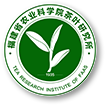Abstract:
In mountainous central Guizhou, biochar was added to the soil at tea plantations by the following methods: Treatment 1 with no biochar application (control), Treatment 2 by covering soil with biochar, Treatment 3 by mixing biochar in planting soil, and Treatment 4 by covering topsoil with half amount of biochar and mixing the remainder half in soil. Number and area of spring shoots on tea plants, as well as the physiochemical properties and contents of effective iron, manganese, copper, and zinc, in addition to continuous measurements of volumetric moisture content, of the soil at the testing lots were monitored. Treatment 2 significantly increased the soil moisture content in spring with rainfalls and in summer of drought periods over control. The water retention of the soils was greatest under Treatment 2 as well. It was followed by Treatment 4 and Treatment 3. As compared to control, the biochar applications decreased the acidity but increased the organic matters and nutrients in soil, as Treatment 3 increased 13.61% on available nitrogen, 172.04% on phosphorus, and 48.23% on potassium, whereas Treatment 2 enhanced the contents of available N, P and K. Biochar incorporated in soil, either by mulching on the surface or mixing into the interior, could significantly boost the spring shoot growth and yield of a tea plant.




 下载:
下载: